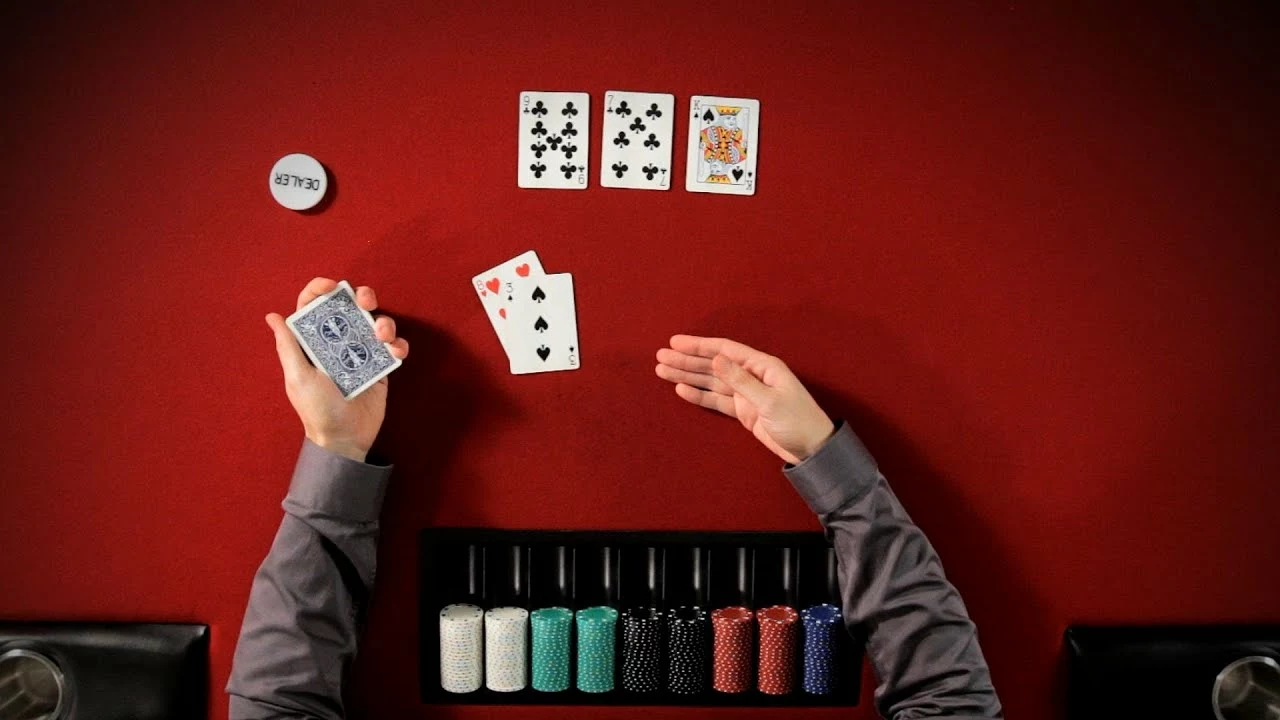
Is Bluffing the Secret Ingredient to Winning Poker?
Any poker aficionado worth their seat on a poker night would tell you that poker isn't just a game of chance. No, ladies and gentlemen, no. It's a game of nerve, wit, cunning and strategy. While whiling away the hours with my trusty pets, a Maine Coon cat named Jester, who's just as mischievous as his name suggests and an Australian shepherd named Sully, an affectionate and protective fellow, one is bound to start pondering life’s greatest mysteries such as: "Do I really have to bluff so I can win at poker?"
Demystifying the Art of Bluffing
You see, many believe that bluffing is the ultimate strategy that separates the rookies from the card sharks. But have you ever wondered if this is true? As a young lad, I remember the first time I got introduced to this art by my elder cousin. His sage advice rings in my ears even today: "Maverick, bluffing is like spinning a wicked web of deceit, disguising your weak hand as a winning one." See, bluffing is just as it sounds. It's about making your opponent believe that you have a better hand than you actually do.
The Role of Bluffing in Poker Games
Throughout the history of poker, bluffing has been considered central to mastering the game. Veteran players often employ it as a decoy or a weapon to dismantle the opponents' confidence or to protect their own stake. But is bluffing necessary to win a poker game? Not necessarily. Sure, it can give you an edge over less experienced players or scare away those who might not be as confident. But continually relying on bluffing isn't a foolproof strategy. It's like trying to win a marathon with only one good leg, it's not impossible, but sure as hell exhausting.
Combining Skill and Strategy to Outshine Bluffing
In truth, poker is a game where mathematical prowess, calculated risks, and in-depth understanding of your opponents' behaviours take the main stage. Bluffing, while a handy skill to have in your arsenal, is by no means the end-all and be-all of the game. It's more about being observant, knowing when to act and when to fold, and keeping your emotions under control. Like my Jester, always watching from the corner, assessing if it's the right time to sneak up on that deliciously tempting string of yarn.
A Closer Look at Bluffing Tactics
Let's say you're still intrigued by the concept of bluffing, it's necessary to understand the range of bluffing techniques at your disposal. There's the 'Stone-Cold Bluff,' a risky move where a player with a weaker hand bets aggressively hoping everyone else folds. Then there's the 'Semi-bluff,' where there's potential to win, but you've got nothing concrete just yet. It's like when Sully barks at Jester, knowing well enough that a giant leap from the Maine Coon cat is coming, but hoping that his bluff might work this time.
When Bluffing Backfires: A Cautionary Tale
Before you become all too eager to try any of the bluffing tactics in your next poker night, let me tell you about a time where bluffing quickly turned from charm to harm. One fateful night, during my college years, I decided to bluff my way through a high-stakes game. I had the insignificant pair of twos, but I bluffed like I was sitting on a Full House. As luck would have it, my opponent called my bluff and presented a Royal Flush. That night, I lost the game, my pride, and a sizeable chunk of my semester's allowance. A mistake I never dared repeat, for bluffing is a double-edged sword, used wisely it could usher victory, but mishandled, it could be a swift route to defeat.
Key Tips for Developing Your Poker Play Style
Practice, as they say, makes perfect. Whether you decide to incorporate bluffing or favour a more cautious playstyle, it all comes down to understanding the game, practicing, and being comfortable with your preferred style. If you wish to bluff, start small, similar to teaching Sully a new trick. Begin with safe reads, never overdo the bluff, and cultivate your poker face. If, on the other hand, you choose to tread on the safer path, focus on reading other players, and master the art of choosing your battles wisely.
A Balancing Act: Bluff, Skills and Strategy
In conclusion, do you have to bluff to be good at poker? No, at least not always. While bluffing can be a powerful tool, it is the understanding of the game's intricacies, a good measure of skills, and a well-thought-out strategy that truly defines a good poker player. So, pull up a chair, shuffle the deck, and put forth your best game, bluff or no bluff, it's all fair game as we navigate through the riveting world of poker.
